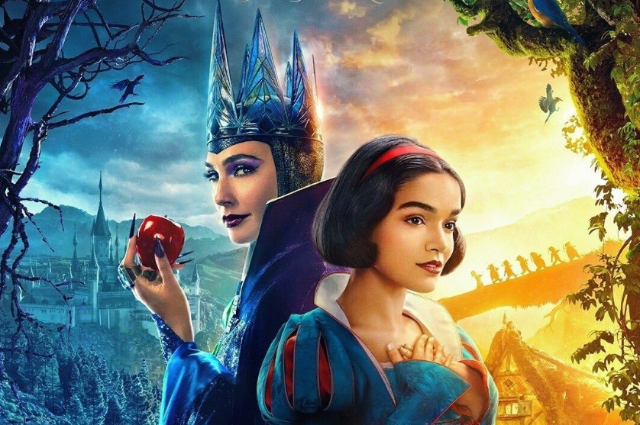The 2025 version of Snow White, to be fair, Disney's live-action remake of its first animated picture, has received mixed reviews from the audience. The remake tried its best to be accepted as a feminist film and one that promotes woman empowerment while balancing the old and the new. I watched the film with a grain of salt and kept my logical mind aside—at least, I tried to! However, I could only fathom the discourse of its nurture to a certain extent. In this review, I go deeper into the intricacies of empowerment, fantasy and the performances the film encompasses.
Premise of the Film
Following Kenneth Branagh's Cinderella script, director Marc Webb gives his heroine a fearless motto and an affair with the past that is more than "charming." Besides wishing her prince would come, Rachel Zegler's wide-eyed Snow White wants to rule her people well and help them believe again in the social compact and, by extension, their compassion for each other. As the legend of the fairytale stands, she encounters the evil queen Gal Gadot, who is cinched in tight jewels and slinks around being unapologetically bad. So we move along over the story's usual beats: before Snow White loses her wholesome parents, her father remarries a brutal villain. After working as a palace servant, Snow White is rescued and taken in by a group of small dwarfs before the queen becomes envious of her loveliness and gives commands for her to be killed.
Woke and Classic: The Film Suffices to Find its Middleground
To steer clear of racial criticism over the fact that the lead actress, Rachel Zegler, is not as white as the whitest snow, Snow White refines the narrative of the derivation of the classic name of the protagonist. The princess of an unnamed kingdom in an undetermined historical period is christened for having been born in a storm, bursting into the world like a beam of hope during the harsh winter. In a musical performance filled with well-wishes and plenty of apple pies to make it even more delightful, she and her kingly parents' perfect life is shown to us. Forest animals are there, and they seem happy, too! But gloom enters the life of everyone once the Good Queen (the victim of the awful epidemic of voiceover exposition) passes away.
And we all know where this is going when Gal Gadot's Evil Queen (yep, she never gets a name) arrives. Upon becoming enamored of the seductress, the Good King takes her advice straight away to go fight a far-off war and never returns. The image is cleverly implied in the film that the Queen's beauty somehow endows her with magical powers, so Snow White's growing beauty is an existential threat rather than a narcissistic one. As the Evil Queen has turned all the farmers into soldiers and the light of the kingdom and its hues turns pale, everybody sort of thinks Snow White is dead. Snow White, rescued by the dwarfs, now feels like she needs to do something to rescue her now-hardly-happy kingdom. Vanquishing the real villain and her self-doubt, being likable is not Snow White's main aim. The movie portrays Zegler as a more leader-like figure and her relationships more established than the irrefutably passive original, with her lines ringing a whimsical touch of self-empowerment while embodying its past essence.
Powerful Performances Losing Their Allure Amid a Sloppy Screenplay
This Snow White adaptation seeks to reestablish the rightful bloodline of the throne. Despite the good intentions behind the modification, the literary tactics come out as forced. Furthermore, the visual execution is pure nightmare material.. There is no feeling of their brilliant enchanted forest blending with sequences shot in actual woodlands, nor do the dwarves themselves seem to fit beside real humans. It is an unthougful VFX blunder that slows down the movie's pace every time the dwarfs appear. While talking about performance, Rachel Zegler can perform well in an animated adaption if she does not overtly rely on her portrayal as a metatextual satire of fairytale film clichés.
Gal Gadot plays the evil sorcery queen. Her performance could have been great had it not been for her half-baked dialogue and horrendous costumes. Particularly, in her scene where she had to depict the rage of an evil stepmother tormenting her stepdaughter, her performance especially falls flat. Other than a few incredible songs and costumes, the film does not leave much for her to do. You cannot blame Zegler, Gadot, or even Webb, who you can tell is trying to make her mark with some mannered flashes of great repartee or an airy minute for the mediocrity of the movie.
Conclusion
Snow White falls apart completely towards the end when it hits the final credits, and that's a terrible fate for any film but particularly a terrible fate for a story so heavily reliant on the delight of a fairy tale. The movie does deserve credit for balancing the demands of modernization with an affection for the past. Some pieces of the movie are awe-inspiring, yet overall, it's reasonable and acceptable only for a one-time watch.

